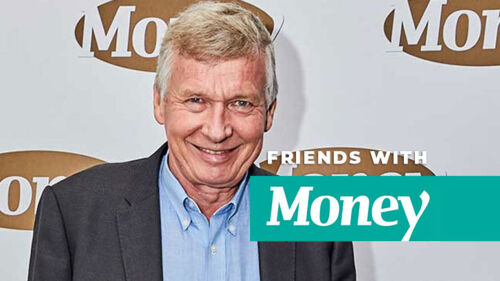Your sneak peek at the April issue of Money magazine
By Money Team
In the April issue of Money magazine, we reveal how you can reduce your tax by $167 per week with an investment property.
Owning an investment property can bring you rental income, the potential for capital growth and some tax benefits. And in fact you might be pleasantly surprised just how good the tax advantages can be. You could reduce your tax by as much as $167 a week when you take into account both depreciation and other deductions. The tax advantages can make a big difference to your bottom line. Getting it right could turn a negatively geared investment property into one that is cash-flow positive. Money's team of experts explain how to make the most of the depreciation benefits and tax deductions to put extra cash back in your pocket.
WHEN IS THE BEST TIME TO SELL SHARES?
It's a tricky question. In a market that has risen just less than 10% in two months, the thought of selling shares may seem a little odd. "Why would I sell my shares when the value of my portfolio goes up every day?" we hear you ask. As an investor, buying shares is the easy part, it's selling the shares that can be difficult. Perhaps you're emotionally attached to them, or you're hoping the sharemarket will go up a little more before off-loading your stock. This is why you should stick to a set of rules. Money lists five rational reasons to sell shares.
WHAT IS PEER-TO-PEER LENDING?
Would you like to earn the high returns banks and other major lenders make from personal and other loans? We're talking over 10% a year when funding a five year loan. Then look no further than peer-to-peer (P2P) lending, a form of fixed-interest investing relatively new to Australia. Peer-to-peer lending is likened to a term deposit on steroids. In Australia, P2P lending is growing fast, with observers saying it has the potential to shake up the personal lending market in the same way that non-bank lenders disrupted the mortgage market in the 1990s. Money gives you the lowdown on how it works and why it's tipped to be the next big thing in personal lending.
MAKE SURE YOU HAVE THE RIGHT HEALTH COVER
Over the past decade, health insurance premiums have jumped by 74.63%, and that's before the average hike of 6.18% due to take effect this month. Some funds' premiums rise by as little as 3.98% while others go up by 7.92%. On average, family policies will cost about $200 more. 13 million Australians now have private cover. So how do you take control of how much you pay each year in premiums? First and foremost, you need to stay on top of your insurance plan and understand what coverage you do and don't need. Money imparts some useful tips on how to get the most out of your insurance and extra costs to beware of.
INTEREST RATE RORT
Official interest rates have come down so are you paying too much? Take for instance your credit cards - they remain an interest rate rort at around 7.5 times the cash rate.
Sitting back and doing nothing at all could end up costing you more. And of course the institutions are relying on us being too lazy to move. Money outlines some of the products you should continue to review in order to stay ahead.
IN YOUR INTEREST
"Joe Hockey, our treasurer, tells us we need to work past age 65 if we are able. He also thinks we are spending too much or, depending on your opinion, not generating enough tax revenue to pay for the services we want. And despite the flak he and his government are getting about spending less, or raising more money via tax, Treasurer Hockey is quite correct. Who would be a politician? While I can carry on about our nation's need to spend less, or raise more money via tax to pay for what we want, I don't have to "sell" the nasty truth while trying to get re-elected." Paul Clitheroe says Joe is right: our country can't keep spending more than it earns.
PAUL'S VERDICT
Glen is 39 and single with no dependants. He owns his home and acreage in Maldon, Victoria, worth $370,000, and has an investment property worth $290,000, owing $290,000 and getting $290 a week in rent. He chips in $65pw to meet the mortgage. He makes $80,000pa and has $60,000 in super, $40,000 in cash and $3000 in Medibank shares. He's putting $500 a week into a separate account and salary sacrifices $50 a fortnight and lives easily within his means. In a perfect world Glen would like to retire at 50 and focus on his fruit trees, vegetable gardens and chickens but this seems unlikely. As we all are, Glen is trying to get the most out of wage. Paul delivers his verdict.
ARE YOU READY TO STREAM?
With film and TV Netflix hitting Australian shores, are you ready to start streaming? Money takes a look at Netflix, Quickflix, Stan and Presto and looks at how they work, suitable data plans for the home and on the go, as well as what each streaming service offers. After all, content is king! And don't forget about the free streaming entertainment services already at your fingertips.
GREENWOOD
'Animal spirits' - used more than once in recent times by Reserve Bank governor Glenn Stevens - is the phrase du jour. He wants economic stimulus to unlock animal spirits, to boost the economy. It is not the governor's phrase, in fact, but that of John Maynard Keynes, the creator of supply-side economic theory - and, many argue, monumental government debt. The Keynes view of life was that if business and consumers stopped spending and investing, then government should step in and fill the breach. But Keynes's nemesis, Austrian economist Friedrich Hayek, argued that governments, like business and households, should live within their means, even if that meant periods of austerity. " The future is uncertain, so keep your cash near at hand, advises Ross Greenwood
MONEY INTERVIEW
When Wendy Pinch was asked to address the upcoming Women in the Energy Industries conference in Melbourne, she was stoked. Apprehensive too. It's a big gig, after all, and public speaking isn't really her go. She's more hands-on. Pinch has been asked to tell delegates what led her to start up Lady Tradies, an infant enterprise aiming to promote the number of women in trades, find them jobs and connect tradie with employer - for a day or a full-time job. A handywoman who feels right at home on a building site wants more girls to take on a non-traditional job, writes Deborah Light.
Get stories like this in our newsletters.


